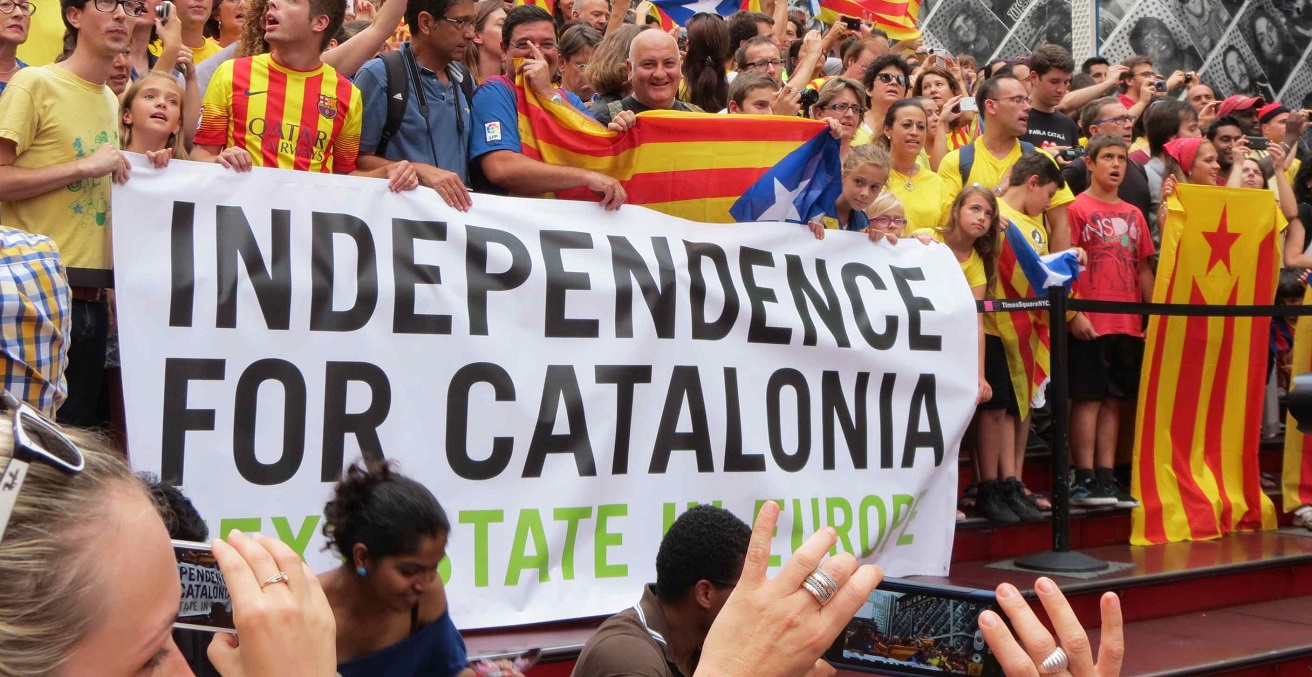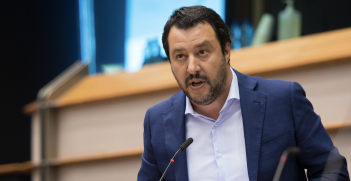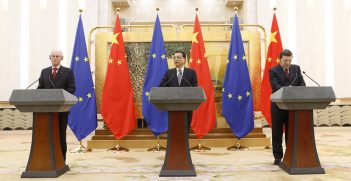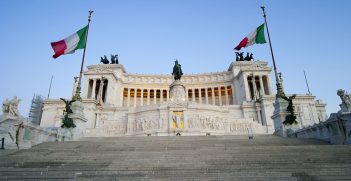Memories of Franco in Spain’s Response to Catalan Referendum

The Catalan president has said the Spanish region will declare independence following last weekend’s referendum, but it need never have come to this.
Catalonia’s President, Carles Puigdemont, has stated the autonomous region will declare independence from Spain in a matter of days. But with the Spanish government’s strong resistance to any form of self determination, it may not be so simple.
On 1 October 2017, Catalonia held its independence referendum despite it being declared illegal by the Spanish state. Initially, for many Catalans it was more important to be allowed what they see as their democratic right to self-determination than to be granted independence from Spain. Yet, the repressive actions of the Spanish government in the lead up to the referendum have only increased support for the region’s secession.
There was a 56.75 per cent turn out for the referendum and, of the votes counted, 90 per cent support the ‘yes’ vote for secession. Catalan leaders vowed to declare independence from Spain just hours after the Spanish king declared the referendum illegal. Catalan society is itself fractured with many Catalans not wanting to separate from Spain and feeling that Catalan politicians have not respected their anti-secession standpoint.
The Spanish government’s authoritarian use of state power in the lead up to Catalonia’s independence referendum has left many commentators drawing comparisons between Spanish Prime Minster Mariano Rajoy’s conservative centralist government and 20th-century Spain’s 36-year dictatorship. According to Rajoy’s government and Spain’s Constitutional Court, the referendum was illegal as the 1978 constitution stipulates the “indissoluble unity” of the Spanish nation. This constitution, which all but imposes the notion of national unity, was written in the wake of a dictatorship that forcefully imposed a monolithic Spanish identity.
It is important to remember that such references in the constitution were written at a time when Spain was making what has been retrospectively seen as a gradual transition to democracy. To bind future generations to a document that was written in such circumstances is problematic. By looking for the backing of the court and turning the question of Catalonia’s right to self-determination into a legal issue, Rajoy has ultimately shut down political debate.
Origins of Catalan independence
The genealogy of the Catalan independence movement can be traced back to the repressive dictatorship. Indeed, the independence movement began at a time when public use of Catalan language was banned and all Catalan institutions were shut down as part of a top down imposition of national unity. Shutting down debate about Catalan secession through references to national unity, as Rajoy has done, has been particularly counter-productive in the light of such relatively recent repression.
Given what the concept of national unity represented for many Catalans during such a big part of the 20th century it would have been more productive to find a way, constitutionally and discursively, to acknowledge the feeling of many Catalans that, with their distinct language, culture and history, they do in fact have their own national identity that is different from their Spanish identity.
Rajoy’s authoritarian repression in the lead up to the Catalan referendum is also reminiscent of 20th century Spain’s authoritarian past. Limiting the right of assembly and demonstration in Catalonia, arresting public officials and senior elected officials for their part in organising the logistics of the referendum, limiting the right to free press, confiscating voting materials and searching private companies only served to increase support for Catalan secession. Such actions were also criticised by a group of international academics, including Noam Chomsky, who signed a letter supporting the 1 October independence referendum and criticised the Spanish government’s political repression in the region, which they likened to the Franco government.
It is not just the central government’s authoritarian misuse of state power that brings to mind Spain’s authoritarian past. Upsettingly, the protests of the extreme right in Madrid against the Catalan referendum saw protestors perform fascist arm salutes and sing the song ‘Cara Al Sol’ (Face to the Sun) which was the anthem during the Franco regime, with its multiple references to national unity.
Spanish response to statehood
Tensions have been rising around the issue of Catalan independence since 2010, when the Spanish government started to erode the statute of autonomy that the previous government had granted the region in 2006. The statute allowed the government of Catalonia, the Generalitat, greater power and autonomy. However, in 2010 Spain’s Constitutional Court determined that Catalonia should not be recognised as a nation, given that the constitution knows only one nation: Spain. It was at this point that support for secession from Spain began to grow in Catalonia.
After attempting to negotiate with a centralist Spanish government that was immovable around issues of Spanish national unity and Catalonia’s status as an autonomous region, Carles Puigdemont’s Catalan government pushed through the laws calling for the referendum. A number of Catalans felt the Generalitat dealt with this issue badly at this early stage and that it would have been better to pursue a constitutional amendment that would allow for the transformation of Spain into a federal state.
Rajoy’s repressive and authoritarian strategy for dealing with the referendum, both in the lead up to and on the actual day of the referendum, meant that many Catalans who had been in favour of less drastic measures than secession ended up voting ‘yes’ to independence. As such, the referendum became perhaps more about discontent with the actions of Rajoy than wanting to separate from Spain.
For a number of commentators, the Spanish government would have had more chance of achieving its goal of national unity had it allowed a vote in Catalonia. Cooperation could have meant the inclusion of more options, such as the choice of remaining an autonomous community but with greater sovereignty, or becoming a federal state. However, the current choice obliges people to either support an independent Catalonia or remain bound to a central government that has recently recalled the worst authoritarian excesses of Spain’s past.
Dr Lara Anderson is a senior lecturer in Spanish at the University of Melbourne.
This article is published under a Creative Commons Licence and may be republished with attribution.





